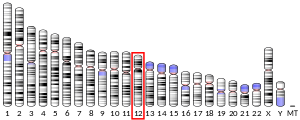
CD63

96712512ENSG00000135404ENSMUSG00000025351P08962P41731NM_001257392NM_001257400NM_001257401NM_001267698NM_001042580NM_001282966NM_007653NP_001244330NP_001254627NP_001771NP_001036045NP_001269895NP_031679CD63 antigen is a protein that, in humans, is encoded by the CD63 gene. CD63 is mainly associated with membranes of intracellular vesicles, although cell surface expression may be induced. CD63 antigen is a protein that, in humans, is encoded by the CD63 gene. CD63 is mainly associated with membranes of intracellular vesicles, although cell surface expression may be induced. The protein encoded by this gene is a member of the transmembrane 4 superfamily, also known as the tetraspanin family. Most of these members are cell-surface proteins that are characterized by the presence of four hydrophobic domains. The proteins mediate signal transduction events that play a role in the regulation of cell development, activation, growth, and motility.This encoded protein is a cell surface glycoprotein that is known to complex with integrins. It may function as a blood platelet activation marker. Deficiency of this protein is associated with Hermansky-Pudlak Syndrome . Also this gene has been associated with tumor progression. The use of alternate polyadenylation sites has been found for this gene. Alternative splicing results in multiple transcript variants encoding different proteins. CD63 is a good marker for flow cytometric quantification of in vitro activated basophils for diagnosis of IgE-mediated allergy. The test is commonly designated as basophil activation test (BAT).
